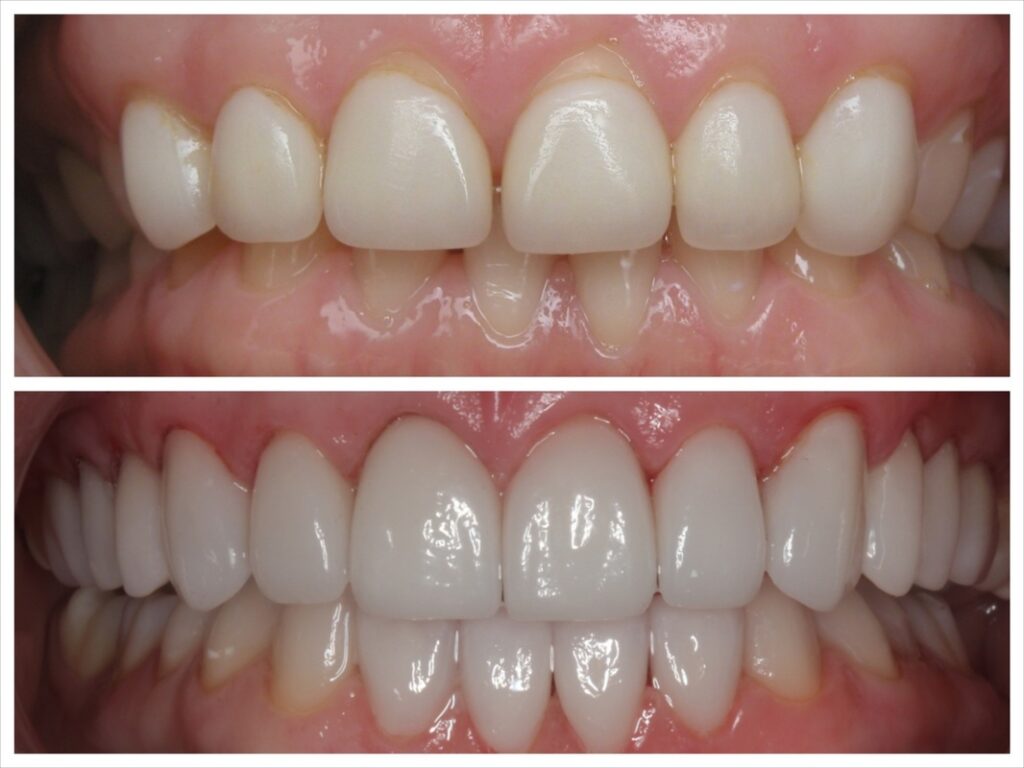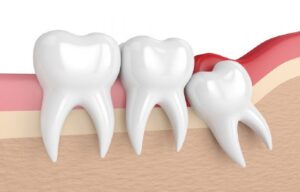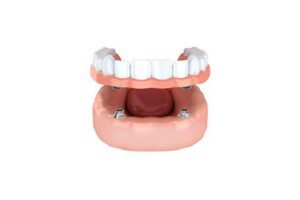How Artificial Intelligence is Transforming Modern Dentistry
7 min read
Artificial intelligence (AI) is rapidly reshaping the landscape of dental care, offering unprecedented opportunities to improve patient outcomes, enhance diagnostic accuracy, and streamline treatments. From AI-powered diagnostic tools to robotic-assisted surgery, modern dentistry is entering a new era where precision and efficiency are at the forefront.
In this article, we explore how AI is influencing various aspects of dental care, including cosmetic treatments such as veneers in London, and why the integration of this technology is changing the way dentists provide care to patients. Whether you’re seeking to improve your smile or simply curious about the latest advancements in oral healthcare, understanding the role of AI in dentistry is essential for navigating the future of dental treatments.
AI in Dental Diagnostics: A New Era of Precision
Artificial intelligence has made a significant impact in the realm of dental diagnostics, where early detection of dental issues can drastically improve treatment outcomes. AI-powered systems are now able to analyze dental images, such as X-rays and 3D scans, with remarkable accuracy. These systems can identify potential issues that may not be easily visible to the human eye, such as early-stage cavities, gum disease, or abnormalities in the tooth structure.
One of the most impressive aspects of AI in dental diagnostics is its ability to learn and improve over time. Machine learning algorithms, which are a key component of AI, allow these systems to become more precise as they process larger amounts of data. For example, AI can compare a patient’s X-rays over time, identifying subtle changes that might indicate the onset of decay or other oral health problems.
For those considering cosmetic dentist treatments in London, AI-driven diagnostic tools can play a critical role in the planning and execution of these procedures. Before any procedure, a cosmetic dentist must ensure that the patient’s underlying oral health is sound. AI systems can help detect any potential issues early on, allowing for preventative treatments that ensure the best possible outcomes for the treatment and the patient’s overall oral health.
AI and Personalized Treatment Plans
AI is also making its mark on personalized treatment plans, where dentists can offer tailored solutions to meet each patient’s unique dental needs. Using AI, dental professionals can analyze a patient’s dental history, current health conditions, and even genetic factors to create a treatment plan that is optimized for that individual.
For patients looking to enhance their smiles with cosmetic procedures, AI can provide highly accurate simulations of potential results. These simulations allow patients to see what their smile might look like after the procedure, giving them the confidence to move forward with treatment. The ability to visualize the outcome is particularly helpful for cosmetic dentist procedures, where aesthetics are a key concern.
AI-driven software can assist the dentist in designing the most precise and aesthetically pleasing veneer placement, ensuring that the they blend seamlessly with the patient’s natural teeth. This level of precision not only improves the appearance but also enhances their durability and functionality.
Veneers in London have become an increasingly popular choice for individuals looking to improve their smiles, and the use of AI in treatment planning and execution ensures that these cosmetic procedures are as effective and efficient as possible. By combining human expertise with advanced technology, patients can achieve stunning, natural-looking results that are tailored to their specific needs.
Robotic-Assisted Dental Surgery: A Glimpse into the Future
Another area where AI is making significant strides is in robotic-assisted dental surgery. While this technology is still in its early stages, robotic systems are already being used in some dental clinics to assist with surgical procedures. These AI-powered robots are designed to perform precise movements that reduce human error, improve accuracy, and shorten recovery times.
Robotic systems are especially beneficial for procedures that require extreme precision, such as dental implant placement or root canal surgery. By using AI to guide the robotic arms, dentists can ensure that the surgery is carried out with a high degree of accuracy, minimizing the risk of complications.
Although robotic-assisted surgery is not yet common for many cosmetic procedures, it is likely that we will see further integration of AI and robotics in this area in the coming years. For example, AI-driven robots could assist in the precise placement of various cosmetic enhancements, ensuring optimal results and a more comfortable experience for patients.
In cities like London, where the demand for advanced dental treatments is high, AI-powered robotics may soon become a regular feature in dental clinics, offering patients access to the most cutting-edge treatments available.
Enhancing Patient Experience with AI
In addition to improving diagnostic and treatment outcomes, AI is also transforming the overall patient experience. One of the most common frustrations for dental patients is the unpredictability of treatment outcomes and recovery times. AI is helping to mitigate these concerns by providing patients with more accurate information about their procedures and potential recovery timelines.
For example, AI-powered platforms can analyze a patient’s data to predict how they will respond to certain treatments, allowing the dentist to offer more personalized care and advice. This can be particularly helpful for patients undergoing complex cosmetic procedures. By using AI to predict how long a cosmetic dentist procedure will last or how the patient’s gums will respond, dental professionals can better inform patients and set realistic expectations.
AI is also being used to improve communication between patients and dental providers. Chatbots and virtual assistants are becoming more common in dental practices, allowing patients to schedule appointments, ask questions, and receive post-treatment care instructions without the need for direct human interaction. This not only enhances convenience for the patient but also frees up time for dental staff to focus on more complex tasks.
For patients seeking cosmetic dentist treatment in London, these AI-enhanced tools provide added convenience and transparency, making the entire treatment process smoother and more efficient.
AI and Preventative Dentistry: A Game Changer for Oral Health
Prevention is a key aspect of maintaining good oral health, and AI is proving to be a game-changer in this area. AI-driven software can analyze a patient’s oral health data and predict their risk of developing certain conditions, such as cavities, gum disease, or even oral cancer. This allows dental professionals to take a proactive approach, addressing potential issues before they become more serious.
For example, AI can help dentists identify early signs of gum disease, enabling them to recommend treatments or lifestyle changes that can prevent the condition from worsening. Similarly, AI can detect early signs of enamel erosion, allowing patients to make dietary or oral hygiene adjustments to protect their teeth.
For patients who have invested in cosmetic treatments, preventative care is essential to maintaining the longevity of the procedure. AI can assist in monitoring the health of the natural teeth and gums, ensuring that any potential issues are addressed promptly.
At Marylebone Smile Clinic, preventative care is a core part of the approach to cosmetic dentistry. Dr. Sahil Patel believes that maintaining the health of the natural teeth and gums is crucial to ensuring the success of cosmetic dentist treatments. By leveraging AI-driven preventative tools, the clinic can provide patients with personalized care that protects their smiles for years to come.
The Ethical Considerations of AI in Dentistry
As with any new technology, the rise of AI in dentistry brings with it certain ethical considerations. One of the primary concerns is the potential for AI to replace human jobs in the dental field. While AI can certainly assist in diagnostics and treatment planning, it is important to remember that human expertise and judgment remain indispensable in providing patient care.
There is also the issue of data privacy. AI systems rely on large amounts of patient data to function effectively, and ensuring that this data is protected is a top priority for dental practices. Dental clinics must take steps to safeguard patient information and ensure that AI systems comply with data protection regulations.
Despite these challenges, the benefits of AI in dentistry are undeniable. By enhancing accuracy, improving patient outcomes, and streamlining the
treatment process, AI offers a wealth of opportunities for both dentists and patients. However, it is important that dental professionals approach the use of AI responsibly, ensuring that patient care remains at the forefront of all technological advancements.
The Future of AI in Cosmetic Dentistry
As AI continues to evolve, its role in cosmetic dentistry will likely expand. In the near future, we may see AI-driven tools that provide even more precise predictions about treatment outcomes, helping patients make informed decisions about any procedures.
Moreover, AI has the potential to improve the durability of cosmetic treatments. By analyzing data on how different materials interact with the teeth and gums, AI could help dental professionals choose the most suitable materials various cosmetic treatments, ensuring longer-lasting results and reduced wear over time.
Patients in major cities like London, where demand for high-quality cosmetic dentistry is on the rise, stand to benefit greatly from these advancements. With the help of AI, dentists can offer more personalized, precise, and effective treatments, enhancing both the function and aesthetics of patients’ smiles.
The integration of AI into cosmetic dentistry offers exciting possibilities. Not only can AI help predict and plan for the best possible outcomes, but it can also ensure that the treatment is tailored to each patient’s specific needs and preferences.
Conclusion
Artificial intelligence is transforming modern dentistry, bringing unprecedented levels of precision, efficiency, and personalization to patient care. From AI-driven diagnostics and personalized treatment plans to robotic-assisted surgeries and enhanced patient experiences, AI is revolutionizing the way dental professionals approach oral health.
As we look to the future, it is clear that AI will continue to play a central role in the advancement of dental care, offering patients in London and beyond the opportunity to achieve the smile of their dreams with greater confidence and ease.




